"the coffee shop owner also loves COFFEE SHOP" when the coffee master meets the bean baking master
For professional baristas, please follow the coffee workshop (Wechat official account cafe_style)
The birth of a cup of coffee must go through a long journey. Raw bean roasting is one link, while brewing is another link. The bean baker sets the tone for the quality of the coffee, while the bar player has a more meticulous flavor. The flavor map interpreted from behind the scenes and in front of the stage has quietly changed Taiwan's coffee market. How do these two different heads run the cafe?
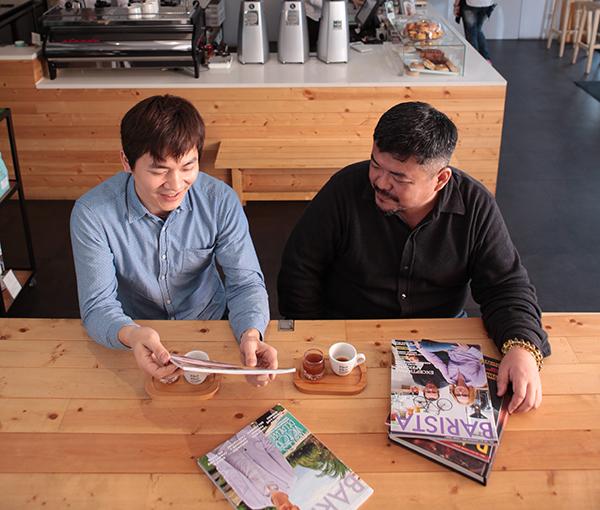
James and Berg, two cafe operators with very different styles, one is introverted and calm, the other is enthusiastic, but they have a tacit understanding when it comes to coffee.
In recent years, Taiwan's coffee industry has entered a mature stage, and the business orientation of cafes has become more diversified. Cafes that used to take the compound route are still thriving, but now more and more cafes are taking "coffee" itself as their main goal. The trend of boutique coffee has quietly changed Taiwan's coffee market.
There is a saying that "people" are the scenery of the coffee shop, so the "coffee man" naturally represents the spirit of the coffee shop. The space, atmosphere, menu and even flavor of the coffee shop are all an extension of the world in the mind of the coffee man. For coffee people who focus on fine coffee, because of their personal circumstances and personality differences, the way they enter the cafe can be divided into two major routes: "baking beans" and "brewing." this leads to the first step in opening up their strong interest. it seems to determine the way they "play" coffee in the future. What kind of logic does the bean baker and the bar player, the two characters in the cafe, use to run? How vaguely different are the areas of coffee they structure?
James, the boss of Fika Fika Cafe, which won the Nordic Cup Coffee roasting Competition, and Berg, the boss of Simple Kaffa, who won the 2014 World Bar Expedition of two ○, have a cold-and-hot conversation that shows us how the coffee shop has gone from a small explosion of enthusiasm to a small universe with its own.
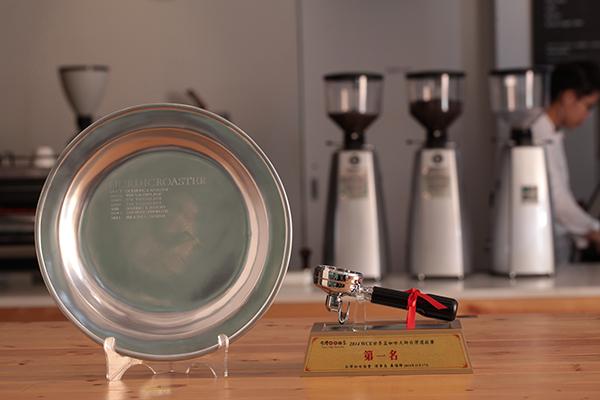
"Nordic Barista Cup" and "WCE World Coffee Master" represent the highest honors in the fields of roasting and brewing, respectively.
Q: baking beans is like backstage and cooking is like front desk. What role do these two different positions play in a coffee shop?
B: the role of the bean baker is to pick the beans and express the style, while the bar player is to combine the style of the bean baker into a cup of coffee by purchasing and brewing. Generally speaking, the bean baker has decided the nature of coffee, and the bar player can only fine-tune it within a reasonable range. For example, if a bean baker uses a shallow baking method to retain more acid, when he meets a guest who requires a less sour taste, the bartender can only reduce the acidity through extraction to meet different needs.
J: the baker is more like a composer, while the bar player is like a conductor. Baking beans is only the general direction, but it is up to the bar player to decide whether to play Bach briskly or heavily. Of course, the bean baker is not bent on going his own way, and sometimes we have to listen to the actual operation of the bar players, correct the technique through feedback, and may even compose music for the conductor to show a special style.
Q: what are the most common sparks and conflicts between foreground and backstage cooperation?
B: what the cafe wants to present is naturally "coffee", so whether the front desk and the backstage fully communicate and reach a tacit understanding must be the key to the success of the performance. In the past, the raw materials (coffee beans) of the cafe were purchased, and the advantage is that the flavor of the formula beans is the same, but the disadvantage is the lack of change, unable to show personality.
J: people used to think that the job of a bean baker was to buy raw beans, bake them, and sell them to cafes. As Berg said, many independent cafes can no longer satisfy a single flavor and begin to offer custom baking services. The baker's job is not as simple as in the past, baking beans to sell, especially a bean may be boiled to different ages, a batch of popular formula beans to produce, must discuss with the bar players, step by step adjustment. I often suggest that coffee people who are new to the industry, instead of plunging into the field of baking beans, should first find a bean baker who can fully communicate with each other and explore their own way step by step.
B: apart from the flavor, the most common problem with coffee beans is that the supply of coffee beans is not always stable, especially the popular beans are often in short supply, so many cafes start to bake at home. The development of Simple Kaffa has also moved from simple procurement to self-baking. The advantage is that baked beans can be combined with cooking experience, deducing from technical problems, and solving possible problems through baking beans. Of course, your own baked beans can behave as you want, and you can play bigger. (laughs)
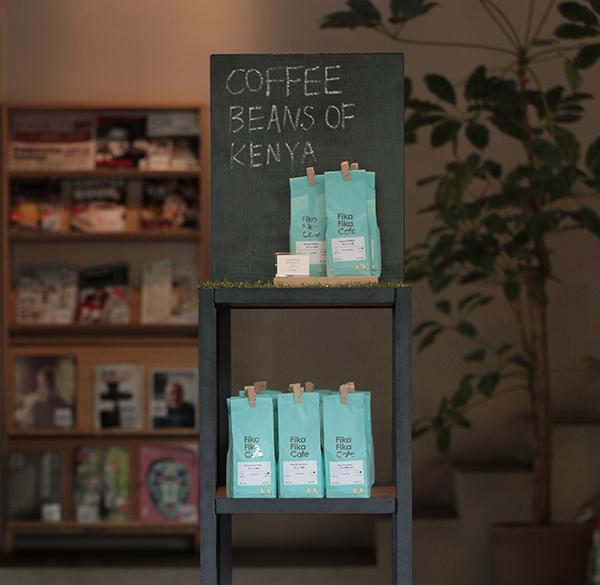
James is a late bloomer and has been involved in the coffee industry for more than ten years. The year before last, he made an appearance in the Nordic Cup Baking Competition and began to show his own style.
Q: what do the two different heads of the bean baker and the bar hand think of the design of the coffee list? For example, Simple Kaffa pays attention to the feeling of drinking, and many drinking keywords are described in the paper, while Fika Fika is concise and focuses on a few formula beans. how do you think?
B: the Menu of a cafe will evolve in different periods. Simple Kaffa's coffee list can be divided into two parts, one is boutique or rare beans, and the other is special brewing, the latter is related to the competition. I mostly introduce the results into the store after the game, so that guests can get access to cutting-edge coffee.
J: I fumbled out what I said. At first, from the point of view of coffee lovers, I designed the coffee list with the mood of loving and playing coffee, and then revised it slowly according to the feedback of the customers, and gradually understood the common language between the coffee people and the customers. to establish this more objective way of tasting coffee.
B: the evolution of the coffee list has a lot to do with the guests. In the early days, Simple Kaffa's menu can be said to be very diverse, but also because it has not yet grasped the relationship of the customer base. It wasn't until the cafe accumulated a regular customer base that I began to cut out some items I didn't like so much and add bolder and tentative elements to form what I am today. For the cafe, the writing of the coffee list is very important, it is related to what kind of guests you want to attract.
J: if it has anything to do with the background of baking beans, at some stage I have an attempt to force customers to taste the original taste of coffee, which probably has something to do with the origin of baking beans. Fika Fika Caf é mainly emphasizes the light Nordic style. In order to meet the needs of guests, I simply divide the coffee into two systems, one is thicker, the drink is mellow and sweet, the other is refreshing and bright, and guided by the bar partner, so that guests can quickly choose the right taste.
Q: the trend of cafes in Taiwan has not abated, but it is silently different. Having been rolling in the circle for many years, what is the trend of the development of cafes in Taiwan today?
B: opening a cafe in the early days is a bit like self-refreshing, with more personal dreams come true. Later, after more and more consumers began to taste good coffee, boutique coffee suddenly became an outstanding study, attracting more and more investors to jump in and do this.
New investors do not necessarily know how to brew or bake, but the desire to quickly introduce coffee expertise into the business model has led to the possibility of a vertical alliance with small boutique cafes. For example, FujinTree started as Select Shop. After developing a diversified operation, it chose to cooperate with us to introduce the coffee profession, thus giving rise to FujinTree 353Cafe by simple kaffa.
J: in the past, boutique cafes were mostly operated individually, with a small amount of capital, and marketing was even more difficult. It was a good thing that the owner was willing to take a stake in such a business. This has led to the birth of more and more good cafes in Taiwan, and for small boutique cafes with a good reputation, the profession has become a kind of patent that can be sold, creating new opportunities. I think that in the case of mutual benefit, Taiwan's coffee market can be imperceptibly influenced to mature.
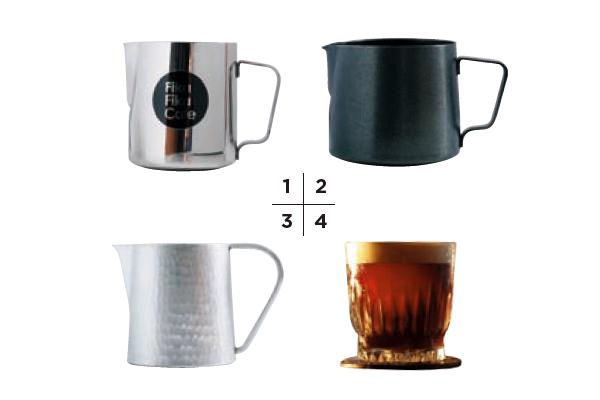
1.Barista Gear brocade steel cup. two。 A small bubble cup. 3. Pull the flower cup. 4. Dark beer, coffee.
Q: it sounds like a lot of possibilities to brand cafes through "joint cooperation", but what difficulties do bean bakers or bar players have to overcome in order to transfer their unique flavor to other cafes?
J: joint cooperation is not just about "selling beans". The essence of a coffee shop is the service industry, and employees doing their part (baking beans and brewing coffee) is only the starting point, but running a coffee shop is entirely the concept of the service industry. Investors buy not just a cup of coffee, but the overall service and trust in the future.
B: let's put it this way, even if customers simply purchase Simple Kaffa formula beans for use, the coffee flavor is deeply affected by the brewing end. In order to really show the coffee flavor, Simple Kaffa not only sells beans, but also provides brewing advice, and even has to solve the customer's problem in brewing. I have also encountered clients whose cups are not the right size, but are unable to fully change their coffee cups, so I have to design another brewing method for them to maintain the tone of the coffee. (in this case, "customer" refers to the coffee shop operator, not ordinary consumers)
J: the transfer of flavor under the condition of different people in different places may also involve the brand of water filter, the water temperature of the coffee machine, the coffee grinding plate, and so on. In fact, coffee beans are agricultural products, and the taste of each season or even each one is slightly different. The formula beans are constantly changing, and the specialty of coffee people is to maintain the consistency of taste through techniques, and virtually develop such high-end services to form differentiation in the market.
-like Berg sets the "threshold of peer-to-peer competition" that no one else can compete. (laughs)
Q: setting up a "threshold for competition in the same industry" means …... huh?
B: from wholesale beans, brewing teaching, equipment procurement, and even to the initial coffee list suggestions and regular correction after opening, these are all the business scope of "brewing a cup of coffee."
J: so it's not the traditional way to sell beans. To achieve flavor reproduction means that supply, technology, and services must be completely transferred. To achieve this, not all operators can do so, of course, the cost is not low (AHA! This is what I call the threshold of peer competition! Only investors who insist on coffee will come to the door, which forms a mechanism for selecting partners.
B: the more mature the market is, the more challenging the coffee maker will be. For James and me, winning the competition is just like getting a ticket, so that guests who have never been here are willing to give you a chance, but whether they are willing to continue to support after consumption depends entirely on the performance of the team. We all hope that cafes will no longer carry "personal" signs, but that, like restaurants, they can cultivate well-trained teams and demonstrate a strong style in different places.
Q: how do you define a good cup of coffee from your point of view?
B: comfortable drinking is the first condition for a good cup of coffee. From a professional point of view, it can be cut from the three angles of smell, taste and touch, the more unrestrained the aroma is, the better it can be clearly identified; in the sense of taste, the sweet and sour bitterness can be balanced, and the higher the sweetness, the better; the sense of touch should be smooth, not with a sense of astringency, or a feeling of scraping the tongue, getting stuck in the throat, and so on.
J: I think the best coffee is the product of the combination and balance of reason and sensibility. The rational part includes the technical and machine aspects, while the emotional part I call the "mind method", such as being able to fully enjoy it when baking or brewing coffee, and remind yourself to give full play to your enthusiasm.
"COFFEE SHOP that cafe owners love, too."
RUFOUS COFFEE
Add: No. 339, Section 2, Fuxing South Road, Da'an District, Taipei
Tel:02. 2736. 6880
Open:13:00-22:00
Although both James and Berg have competed in many competitions, they don't have to compete to make good coffee. Xiao Yang of Rufous rushes out a very personal style of coffee, which is full-bodied and full-bodied, with distinct appeal and high quality.
Zhaocai Coffee Shop
Add: No. 37, Section 1, Meichuan West Road, West District, Taichung City
Tel:0938. three hundred and fifty two。 043
Open:13:00-22:00
This cafe, which is not like a cafe, is located in the western district of Taichung. In fact, it is more like a roadside stall. The owner makes coffee in a very strange way, but the taste is very good. Many customers will leave their cups in the shop, wash them and put them back after drinking. It smells like the place.
PEG Coffee
Add: 309 Jiaxing Street, Xinyi District, Taipei City
Tel:02. 8732. 8603
Open: 14:00-20 Open from Monday to Saturday; 14:00-18:00 on Sunday
There is no conflict between coffee specialty and taste. Many shopkeepers extend their personal tastes and interests in cafes. "PEG with a Coffee" focuses on self-baked coffee with good coffee taste. Shop owners add a large number of King of Sea Thief themes according to their personal interests, which is also a different focus orientation.
Important Notice :
前街咖啡 FrontStreet Coffee has moved to new addredd:
FrontStreet Coffee Address: 315,Donghua East Road,GuangZhou
Tel:020 38364473
- Prev
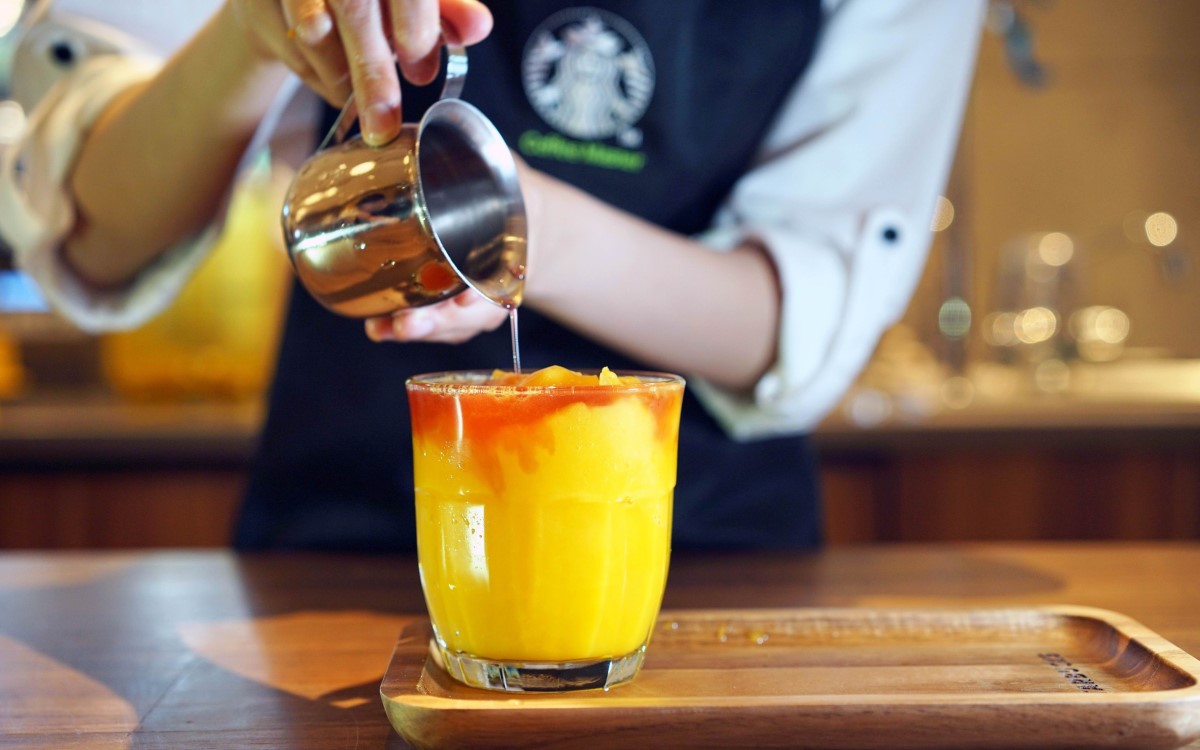
[community experience store] interesting! Starbucks wants to open a coffee shop in your neighborhood.
Professional baristas please follow the coffee workshop (Wechat official account cafe_style) Starbucks has opened stores in China by leaps and bounds in recent years, especially in large business districts and office areas, where Starbucks appears more frequently. As a coffee chain that focuses on the concept of the third space, Starbucks is committed to creating a space beyond the home and work space.
- Next
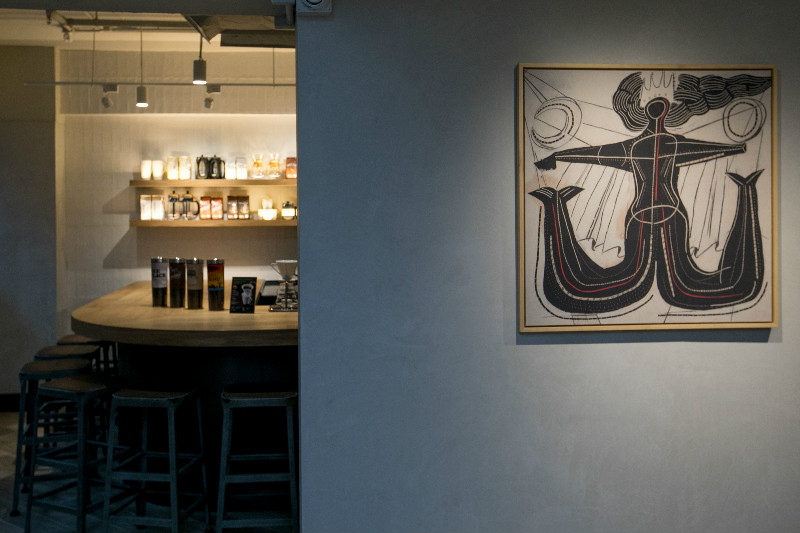
[art × Coffee] New experience of Starbucks close deployment
Professional barista exchanges please follow the coffee workshop (Wechat official account cafe_style) art with coffee, always the best taste, this time this artistic Starbucks, should bring you a new experience! The editor has personally been to the new store on the third floor, the environment is open, the decoration style is simple and clean, and there is no shortage of works of art on each floor. The space on the first floor in the picture below is the most worthy of everyone's attention, because Gu
Related
- What documents do you need to go through to open a coffee shop? coffee shop coffee shop certificate processing process
- How to purchase Coffee beans in small Cafe how to choose a suitable supplier for domestic Coffee supply Company
- How to drink Starbucks Fragrance White Coffee? how to make Australian White Coffee? what Italian coffee beans are recommended?
- The Story of Flora Coffee: the name of Flora Coffee Bean and the implication of the Flowers on Florna Coffee
- How much does a cup of coffee cost? How much is the profit of a cup of coffee? What is the profit of the coffee shop in a year?
- Yunnan small Coffee, known as "fragrant Coffee", introduces the characteristics of Alpine Arabica Coffee producing areas in Yunnan, China
- 2023 latest Starbucks full menu price list how much is a cup of Starbucks coffee what is better to drink the most popular hot and cold drinks recommended
- Starbucks different kinds of Coffee Price list Starbucks menu 2023 Top Ten Best drinks in Starbucks
- Starbucks Spring praise Comprehensive matching Coffee Bean theme Story Packaging implication and taste description
- The cost of a cup of coffee latte American coffee cost price and selling price

